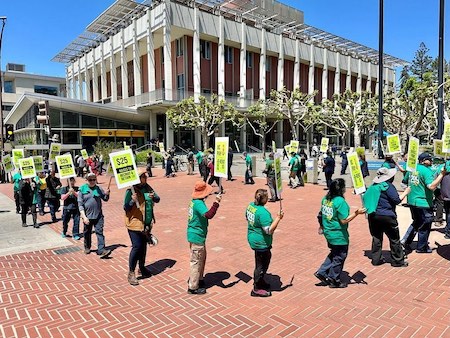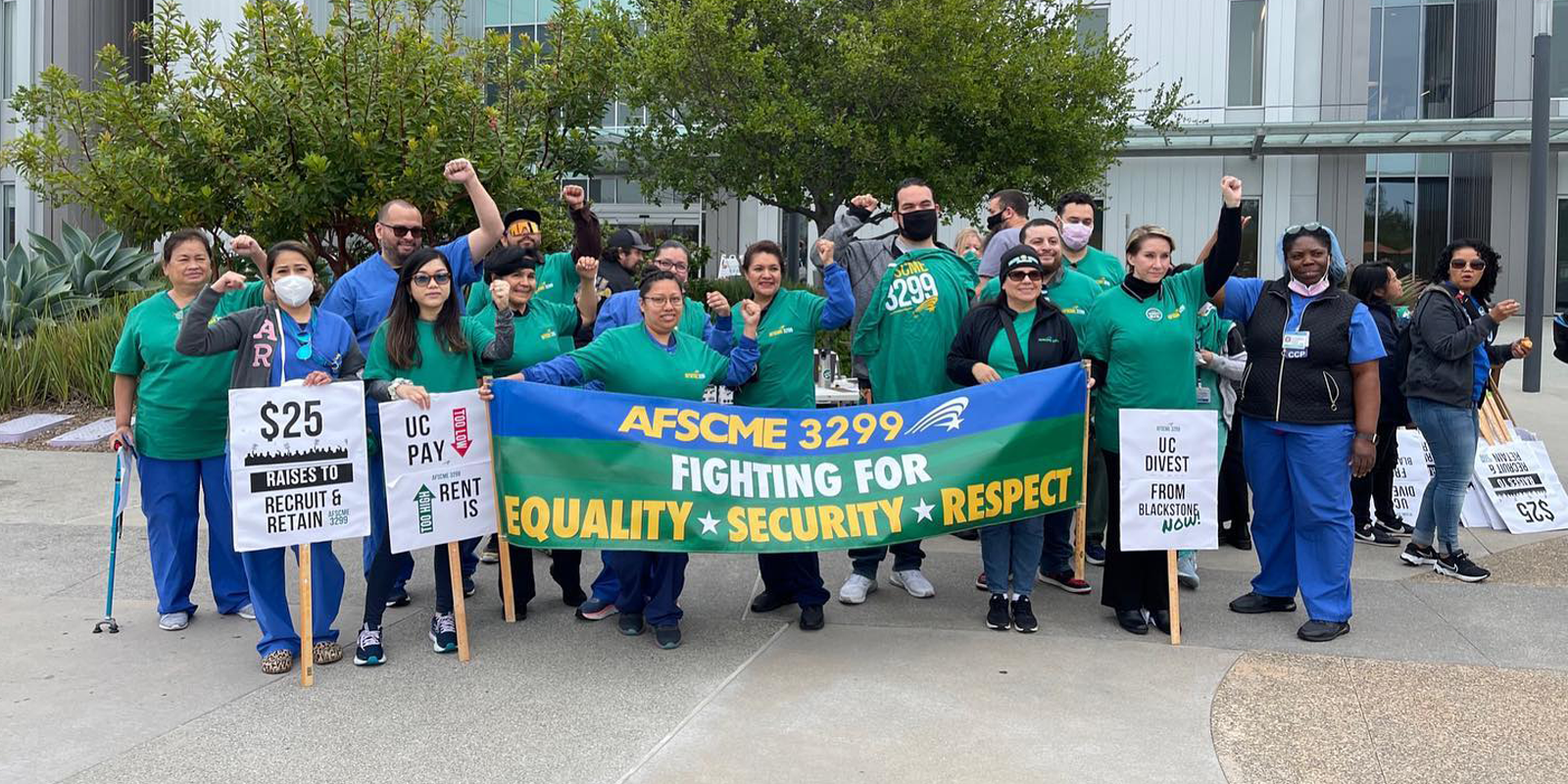
OAKLAND, Calif. – Thousands of AFSCME Local 3299 members, workers from other unions, students and community groups workers rallied at University of California (UC) campuses and medical centers across the state last week, demanding that the UC Board of Regents address the growing affordability and staff vacancy crisis plaguing tens of thousands of front-line workers.
The protests came as UC regents voted to grant their highest-paid executives raises of hundreds of thousands of dollars. Local 3299 is the UC system’s largest union, representing more than 30,000 workers at UC’s 10 campuses, five medical centers, numerous clinics, research laboratories and UC Law-San Francisco.
In March, Local 3299 leadership sent UC Regents President Michael Drake a letter urging officials to establish a $25 per hour minimum wage for all UC workers. The union argued that the real wages for tens of thousands of UC’s front-line service and patient care workers have dropped by 5% over the past two years, adding that more than 70% of these workers are priced out of local housing markets near their jobs.
Many workers are leaving for better paying jobs, leading to a system-wide staffing crisis. Yet, the regents failed to take action last week to raise the pay of front-line workers, only for top-earning executives.
“This week’s regents action on executive pay raises is beyond shameful — it’s embarrassing,” said Local 3299 President Kathryn Lybarger, who’s also an AFSCME vice president. “Instead of standing up for workers fighting to keep a roof over their heads and the facilities that students and patients depend on sufficiently staffed, UC chose instead to invest in making yachts more affordable for their growing legions of ivory tower elites.”
Davina Woods, a custodian with 12 years of service at UCLA, said by paying workers at least $25 an hour, “UC could bring food and housing security within reach for thousands of the dedicated staff who make this institution run. I don’t make $25 per hour but if I did, it would be the difference between living and just surviving.”
Protesting UC workers have also demanded that UC divest more than $7.5 billion from Blackstone Investments, including $4.5 billion in recently acquired holdings from Blackstone’s Real Estate Income Trust — much of which was drawn from the pension funds of UC workers already struggling with skyrocketing housing costs. Blackstone Investments has been accused by the United Nations of being a major contributor to housing crises all over the world.
“Many UC workers can’t find affordable housing in the communities in which they work,” said Michael Avant, executive vice president of Local 3299. “What we’re dealing with are the choices UC is making. The choice to underpay workers and ignore the realities of the labor market only creates more poverty and more staffing shortages that undermine the quality of the student and patient experience.”
UC workers aren’t the only ones facing severe staffing shortages. Job cuts during the COVID-19 pandemic and hiring freezes slashed the public service workforce. Today, the public services are still hundreds of thousands of jobs short from pre-pandemic levels. States, cities, and towns are not hiring fast enough to fill the lost jobs, which is putting a strain on the everyday heroes who keep our communities running.
AFSCME’s Staff the Front Lines initiative is a nationwide effort to increase staffing in public service jobs. As part of this effort, AFSCME members are organizing together to recruit qualified and passionate professionals to work in public service and to make sure that lawmakers adequately invest in our essential workers.
